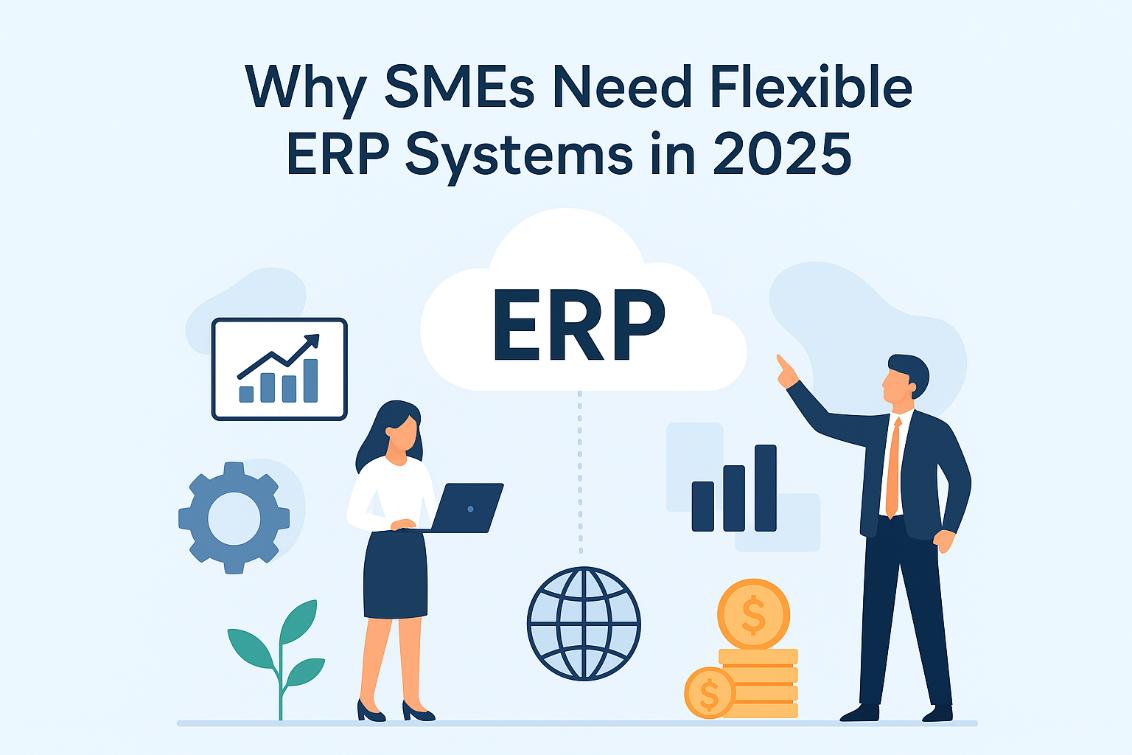In 2025, small and medium enterprises (SMEs) face a fast-changing business environment. Customer expectations are evolving, supply chains are global, and competition is tougher than ever. To stay ahead, SMEs need technology that adapts as quickly as they do , and that’s where flexible ERP systems come in. Unlike rigid, one-size-fits-all software, modern ERP (Enterprise Resource Planning) solutions are designed to scale, customize, and evolve with your business.
1. Scalability for Business Growth
SMEs are no longer confined to local markets. As they expand, they need ERP systems that can grow with them , whether it’s handling more users, branches, or transactions. Cloud-based ERP solutions allow businesses to add features or modules as they scale, without costly overhauls.
Tip: Choose an ERP platform that supports modular upgrades, so you only pay for what you need.
2. Customization to Match Unique Workflows
Every SME has its own processes. Flexible ERP lets you customize dashboards, workflows, and reporting tools so that your software reflects the way your team actually works. This increases productivity and reduces the learning curve.
Example: A retail SME may integrate its ERP with POS systems, while a manufacturer focuses on inventory and production planning.
3. Cost Efficiency Through Smart Deployment
Budget constraints often limit technology adoption for SMEs. Flexible ERP systems offer affordable subscription models, allowing businesses to avoid large upfront costs. Cloud hosting also reduces the need for expensive in-house servers and IT maintenance.
4. Supporting Remote and Hybrid Teams
With hybrid work now standard, SMEs require ERP platforms that employees can access anywhere, on any device. Cloud-based ERP makes remote collaboration seamless, ensuring data is always up to date and available in real time.
5. Faster Decision-Making with Real-Time Insights
Flexible ERP solutions integrate data across sales, finance, inventory, and HR. This gives SMEs a single source of truth for decision-making. Real-time analytics and dashboards empower managers to act quickly on trends, opportunities, or risks.
6. Staying Compliant and Secure
Regulatory requirements and cybersecurity threats are no longer issues for large enterprises alone. SMEs must safeguard data while complying with industry standards. Modern ERP vendors provide built-in compliance tools, role-based access, and robust security updates.
Conclusion
In today’s dynamic market, SMEs can’t afford to rely on outdated, rigid systems. Flexible ERP platforms provide scalability, customization, cost efficiency, and security , all essential for staying competitive in 2025 and beyond. By adopting the right ERP solution, small and medium businesses can streamline operations, empower teams, and position themselves for sustainable growth.



